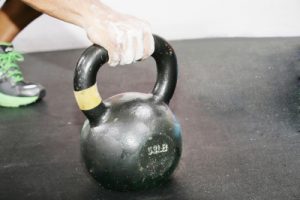Eating Disorders, Depression, And Athletes
 While previous studies have shown a link between eating disorders and depression, research on how athletes are affected by these conditions has been somewhat conflicting.
While previous studies have shown a link between eating disorders and depression, research on how athletes are affected by these conditions has been somewhat conflicting.
A study published in the Journal of Sport Sciences found that body image pressures faced by athletes could lead to depressive tendencies, as well as regimented eating habits that could be considered “disordered.”
The kind of diets required by top athletes – those that may deprive them of particular nutrients or enough calories – could also make mental health problems worse, researchers reported.
The study
The question posed in the study was whether depression leads to eating disorders in athletes or eating disorders leads to depression in these individuals.
More than 100 British athletes participated in the study, completing questionnaires that assessed their weight, diet history, previous eating habits and desired weight. The individuals were also asked about their attitudes toward eating, their feelings about body image and whether or not they felt a loss of control around food.
The athletes were also surveyed and examined for signs of clinical depression.
After six months, the athletes were assessed for BMI, general psychological state, depressive symptoms, and eating habits during the study.
Results
The results, researchers said, conflicted with existing research.
“It was found by a small margin that eating and diet disturbances were a precursor to depressive tendencies,” a press release on the study stated.
Contributing factors to this outcome included low self-esteem, failure to meet personal standards of physical appearance, sports-related pressure and regimented eating habits.
In essence, the authors concluded, the pressures of diet and physical performance increased the risk of depression in athletes.
Prevention and treatment strategies should consider how sports organizations and clubs can take best care of the physical and mental health of their athletes, the authors said.
“Research needs to move beyond examining the factors that affect eating … to the factors that are affected by eating, so that a more comprehensive and holistic theoretical framework can be established,” they wrote.
Source: Taylor & Francis
Image courtesy of David Castillo Dominici/FreeDigitalPhotos.net
 Eating Disorder Self Test. Take the EAT-26 self test to see if you might have eating disorder symptoms that might require professional evaluation. All answers are confidential.
Eating Disorder Self Test. Take the EAT-26 self test to see if you might have eating disorder symptoms that might require professional evaluation. All answers are confidential.